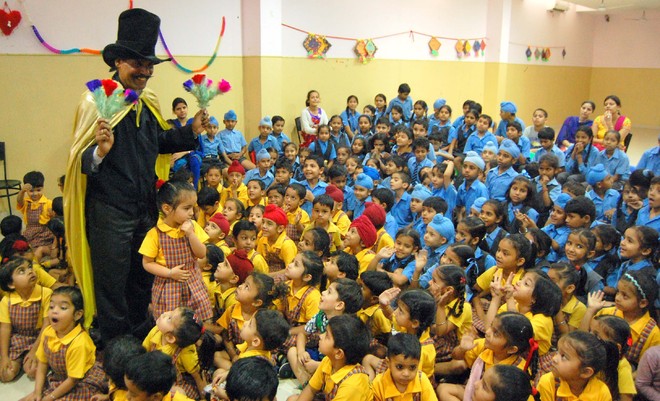
Magic shows have long been a source of awe and wonder, captivating audiences of all ages. But did you know that magic shows can also be a powerful educational tool, especially for schools? Incorporating magic into school programs not only entertains students but also enhances their learning experience in a unique and engaging way.
One of the main benefits of magic shows in schools is their ability to capture and hold students' attention. Magic tricks are inherently intriguing and surprising, making it difficult for students to look away. This captivation helps create an ideal learning environment, as students are fully engaged and focused on the performance. Magic shows also allow for active participation from the audience, encouraging students to interact and ask questions, further enhancing their learning experience. This level of engagement is often hard to achieve through traditional teaching methods alone.
Another advantage of magic shows is their ability to stimulate critical thinking and problem-solving skills. Magic tricks often involve complex techniques and principles, requiring the magician to think logically and creatively. By witnessing these tricks, students are exposed to the process of problem-solving in a hands-on and practical way. They are encouraged to analyze and understand how the trick is performed, promoting critical thinking and deductive reasoning. This type of mental stimulation is invaluable for students' cognitive development and helps them build important skills for future success.
In addition to critical thinking, magic shows also promote communication and social skills. Magicians are not only skilled performers but also natural entertainers and communicators. They have a unique ability to connect with their audience and convey their messages effectively. By watching a magician perform, students learn valuable communication skills, such as the importance of clear and concise instructions, body language, and audience engagement. These skills are not only useful in a performance setting but also in everyday life, as effective communication is essential for success in any field.
Furthermore, magic shows can serve as a platform for teaching various subjects and concepts. Magicians often incorporate educational elements into their routines, making the learning experience fun and interactive. For example, a magician may use mathematical principles in a trick, demonstrating math concepts visually and practically. This hands-on approach to learning helps students grasp complex subjects more easily and remember the information for a longer period. By linking magic with academic content, teachers can make lessons more engaging and memorable for their students.
Lastly, magic shows can inspire creativity and imagination in students. Magic tricks often involve surprise, wonder, and imagination, which can spark students' curiosity and encourage them to think outside the box. By witnessing the seemingly impossible, students are inspired to explore their own potential and push the boundaries of their creativity. This sense of wonder and imagination can have a lasting impact on students, motivating them to pursue their passions and think creatively in various aspects of their lives.
In conclusion, magic shows have immense potential as educational tools in schools. From capturing students' attention to promoting critical thinking and communication skills, magic shows offer a unique and engaging way of learning. By incorporating magic into school programs, educators can create an environment that is both entertaining and educational, making learning an enjoyable and memorable experience for students.